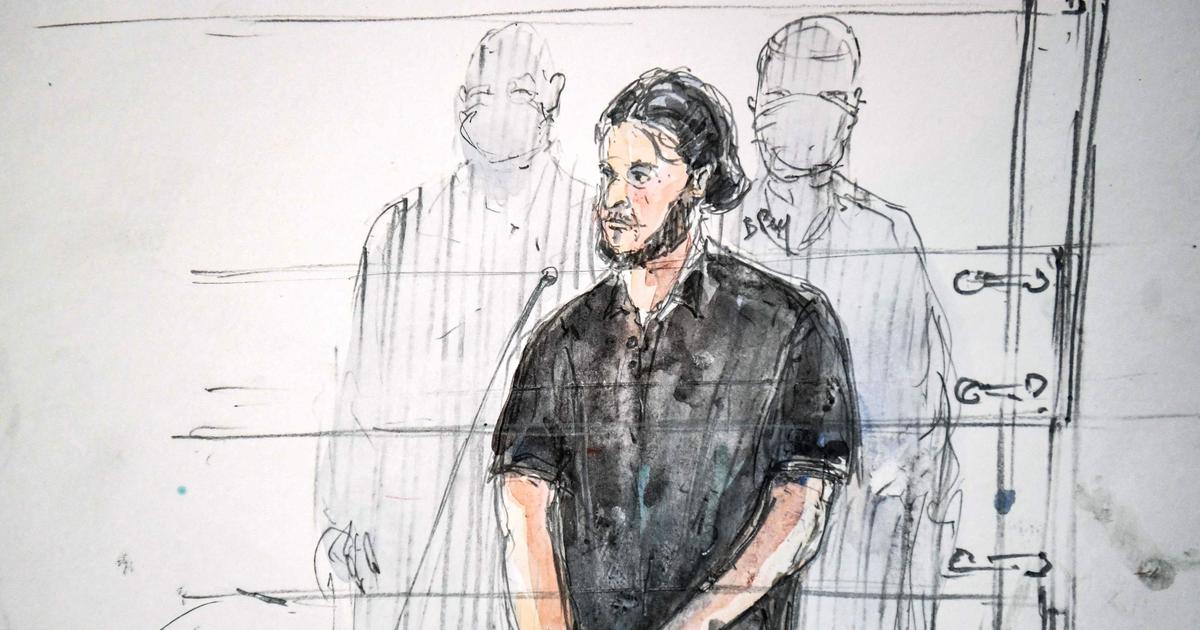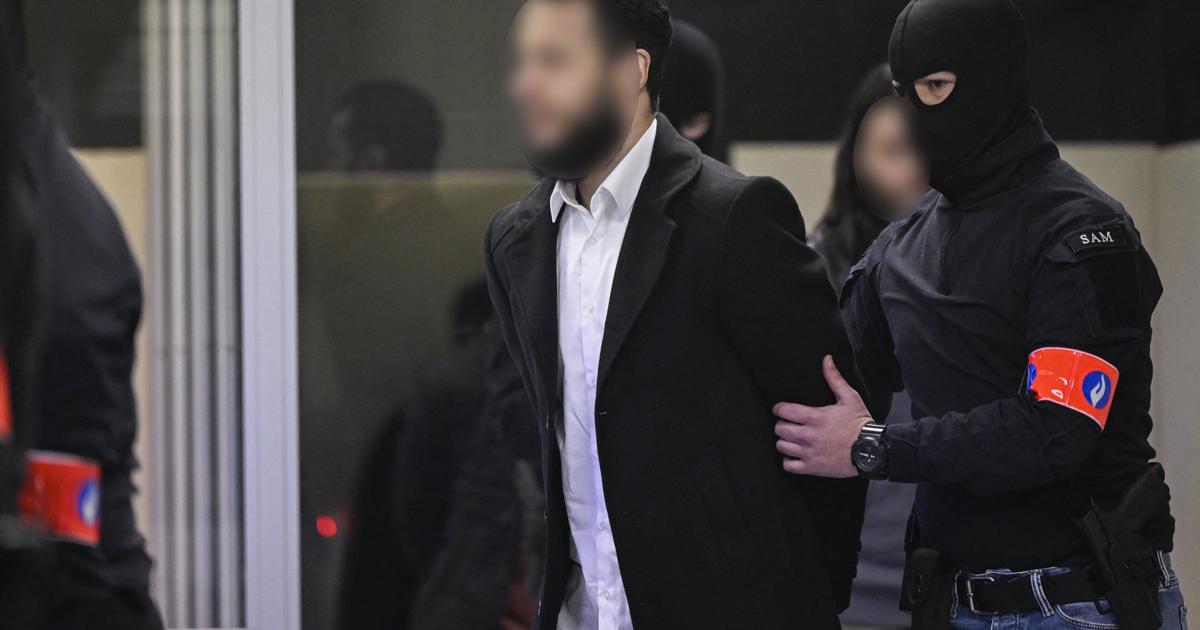The hour of the verdict has finally come, after 10 months of hearing.
This Wednesday, June 29, the special assize court of Paris must render its decision on the fate of Salah Abdeslam and his co-accused, tried since September the attacks of November 13.
According to President Jean-Louis Périès, the reading of the deliberations could begin
"from 5 p.m.".
Read alsoAttacks of November 13: feigned apologies or sincere regrets, the last words of the defendants
On June 10, the national anti-terrorist prosecutor's office demanded life imprisonment without reducibility or "
real life
", an extremely rare sanction for the only surviving member of the commandos of November 13, 2015, considering that this "
key player
" had "
remained faithful to his ideology to the end
" and had never expressed "
the slightest remorse
".
What does this sentence mean?
Why is it called extremely rare?
Le Figaro
takes stock with Maître Paul-Henry Devèze, criminal lawyer at the Paris bar.
What is perpetuity?
And why speak of “
incompressible perpetuity
”?
One might think that perpetuity is synonymous with life imprisonment, but this prison sentence - we speak of "
criminal imprisonment
" when it is for crimes at the Assizes and not of "
imprisonment
" -, without the possibility of release, n does not exist in France.
When we talk about “
life imprisonment
”, this means in law that the sentence imposed is not limited in time.
On the other hand, the convict can ask for sentence adjustments: in fact, he can therefore leave prison from a certain moment.
However, the judge can add a security measure called a “
security period” to
this sentence : during this time, no adjustment of the sentence will be possible.
It is in this context that “
real
” or “
incompressible
perpetuity ” comes into play.
It corresponds to the longest possible safety period: 30 years.
In other words, even this maximum sentence does not correspond to “
life imprisonment
”.
Indeed, after this 30-year period, the convicted person will be able to benefit from a review of his sentence.
"
Even accompanied by a period of extreme security, no sentence can escape the principle of individualization
", specifies Maître Devèze, before adding that "
the gradual return of the convict to freedom being a superior principle in our democracy
”.
When was it included in the Penal Code and why?
The “ incompressible
” life sentence
is quite recent.
It was included in the Penal Code in 1994, under the Balladur government, after the murder and rape of an 8-year-old girl by Patrick Tissier, already convicted in 1971 for the same facts.
At the time, the Keeper of the Seals, Pierre Méhaignerie, had been affected by the case.
Patrick Tissier had been sentenced to life imprisonment with 30 years of security.
While he has just served 29 years in prison, Patrick Tissier will be able to ask to be released next year.
The scope of irreducible life imprisonment was extended in 2011 to the offenses of murder committed against a magistrate, a national police official, a member of the national gendarmerie, a prison administration staff member or any other person vested with public authority, on the occasion of the exercise or because of his functions.
However, it was a law enacted in 2016 that extended the scope to terrorist crimes.
Concretely, "
if life imprisonment is imposed, the Assize Court may go so far as to decide that none of the individualization and adjustment measures listed will be granted, which amounts to making the conviction a frozen in time for the life of the convict.
“Because nothing says that the judges will accept the request for adjustment of sentence that the condemned can make after 30 years.
Why is this penalty called extremely rare?
If this law is described as extremely rare, it is because it has been pronounced only very few times in French judicial history.
Since the reform of 1994, it has only been pronounced six times for four people sentenced in total.
In 2007, Pierre Bodein, known as “
Pierrot le fou
” was convicted by the Court of Assize of Strasbourg for three murders, three rapes and three kidnappings.
Its situation cannot be reviewed before 2034.
In 2008, Michel Fourniret, known as "
the ogre of the Ardennes
", was sentenced for the murder of seven young women and the assault of three others.
He died in 2021.
In 2013, Nicolas Blondiau was sentenced for having raped and killed in 2011 the little Océane, aged 8.
In 2016, Yannick Luendé-Bothelo, was sentenced to incompressible life imprisonment for the rape and murder of Marion, 14, in Bouguenais, near Nantes in 2012.
“
By way of comparison, the number of people sentenced to life imprisonment with a security period of more than 22 years is nineteen
,” says Maître Devèze.
There are therefore almost 5 times less incompressible life sentences than “
simple
” life sentences.
Can Salah Abdeslam be affected by this sentence?
The reform, which came to modify the security measures concerning terrorist crimes, dating from 2016. The question of retroactivity then arises given that the facts here occurred in 2015. However, the offenses related to a terrorist enterprise could already be punished with life imprisonment.
Since the reform of the criminal code in 1994, terrorism can be treated as an aggravating circumstance, increasing the penalty for murder (30 years in prison) to life if it is linked to a terrorist enterprise.
What about incompressible perpetuity?
We are talking about the security measure in addition to the life prison sentence.
“A security measure does not condemn someone because he has committed an act, he is ostracized from society because this person is always potentially dangerous
”, specifies Maître Devèze.
Unlike a sentence, a security measure is not punitive, but preventive.
However, these can be retroactive, unlike penalties.
Salah Abdeslam could therefore well be sentenced to incompressible life imprisonment, i.e. a life sentence with a maximum security period of 30 years.
How can a convict request a review of his sentence and ask for an adjustment?
The convicted person may request a review of his sentence under several conditions:
Only after the convicted person has been imprisoned for at least thirty years;
Only when the convicted person demonstrates serious guarantees of social rehabilitation;
Only when the reduction of the safety period is not likely to cause a serious disturbance to public order;
That after having collected the opinion of the victims having the quality of civil parties during the decision of condemnation;
That after expertise by a college of three medical experts registered on the list of experts approved by the Court of Cassation, proceed to an assessment of the dangerousness of the condemned person.
This procedure is therefore particularly cumbersome and the conditions for adjusting the sentence are numerous.
"
The heaviness of the mechanism is commensurate with the political message: to convince the public that it will be difficult for terrorists to escape 'incompressible perpetuity'
", concludes Maître Devèze.









